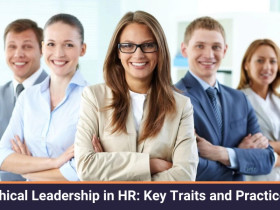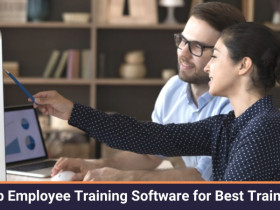With health and wellbeing continuing to be a priority for employees, its vital leaders create a culture of growth and support in 2024. But how?
The year is already running away with us, and it looks like it’s going to be another challenging one as we continue to live and work in a constantly changing environment.
Health and wellbeing are continuing to be key topics of conversation and important factors as people consider who they want to stay employed with, or which employer they want to join.
We are experiencing increased levels of absenteeism and employee mental health concerns. People are over stretched by the financial demands on them as result of the rising cost of living and have an increased focus on our environment, with more of us wanting to contribute to the communities we live and work in.
We are at the point when salary increases, and/or bonuses are not enough to attract and retain people. If we care and demonstrate this in multiple ways, then the payback in terms of engagement, productivity and employee loyalty can be phenomenal.
It’s crucial to listen to our employees and understand what we might be able to do differently to meet their changing needs.
So, what are their needs and are they being met?
I always advise organisations to identify the needs of their employees – these are their ‘Moments that Matter’ in their employment with you. The key touch points and interactions that your employees have with your business, and how you can enable them to support the business in an optimal way.
Supporting your employees wellbeing is absolutely one of those moments. If done in a safe space, they will share with you what their needs and family needs are. Some of these may already be met, maybe they just aren’t communicated enough. Some may feel unexpected, but equally need to be considered.

So, what do I mean when I talk about Wellbeing?
I talk about 5 component parts to the wellbeing support that employees are asking for, and organisations can provide: Physical, Mental, Financial, Social and Environmental.
Physical Health
This can take many forms, but the key is active encouragement and understanding of why physical exercise is important for all of us.
- Gym membership / discounts – this can be for the individual and their family
- Reward programmes and competition (e.g. largest number of steps by a team in a month)
- Flexible start / finish times to enable people to get to an exercise class / walk to work.
- Team meetings outside
- Bike to work schemes
Mental Health
This can be a combination of communicating more about current benefits and support in this area or introducing new initiatives. The good news is that we are now talking more openly about mental health, people are more willing to talk about the impact on them or other family members.
- Introducing, or enhancing communication about, an employee assistance programme (EAP). You may even extend its uses to immediate family members
- Medical health care options being extended to include availability for family members
- Internal workshops for employees, to enhance their own knowledge and ability to support / care for others.
- Reconfiguration of office space to provide more space, relaxation and social areas, water etc.
- Flexibility in start / finish times / working arrangements.

Financial Health
With the increased pressure that many are feeling due to the increased cost of living and a rise in gambling and spending addictions, it should be a growing focus for organisations to recognise the knock-on effects on absence, attrition and grievances.
- Introducing workshops on effective financial management.
- Communicating that the EAP service can provide support and counselling in this area.
- External parties coming on site to assist with topics like Will writing, LPA applications etc.
- ‘Save as you earn schemes’ to help employees save to pay off debts etc.
Social Health
We know that we all need social connection to varying degrees and the pandemic impacted this for all of us; hybrid working has helped in so many ways but one of the challenges with it has been keeping that team connected and engaged.
- Connect days – a regular day (be it in a week or month) when all employees within the team or company come into the office.
- Reconfiguration of the office to provide social areas.
- Regular team social events which could include lunches, fun activities or even online quizzes for those remote teams
- Family orientated events
Environmental Health
With this on the radar for many of us now, candidates at job interviews are often asking employers what the company is doing to make an environmental difference.
- Moving to smaller offices
- Very visible recycling
- Shared car journey schemes
- Employee groups and initiatives in the community (can be used for team events so links to Social Health too)
People will turn down a better paid job to join or stay with you if support in these areas is available – particularly if it also includes support for their families. The key is communicating all you are doing on a regular basis and in multiple ways, and get your employees actively engaged in initiatives (and leading them!).
We always assume that when someone gets to a management and / or leadership position, they are equipped to help others in all areas. However, many have the technical skills and time served but not necessarily the softer skills needed to support their ability to connect and have those trickier discussions. They need to have support in developing critical soft skills to help them listen and understand. To do this, they need to be invested in, supported themselves and provided with an organisation toolkit.
Getting started on this topic can feel daunting. Start small and think big. Ask your employees what their priorities are and start building up an offering step by step. Request feedback along the way to finesse your approach. Doing nothing is no longer an option and will impact your business in multiple ways.













Leave a Reply